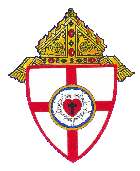Augustana Catholic Church
| Augustana Catholic Church | |
|---|---|

Official logo
|
|
| Classification | Lutheran |
| Orientation | Evangelical Catholic |
| Polity | Episcopal |
| Associations | Augustana Catholic Communion |
| Founder | Irl A. Gladfelter |
| Origin | 1997 Kansas City, Missouri |
| Branched from | Lutheran Church–Missouri Synod |
| Merger of | Athanasian Catholic Church of the Augsburg Confession |
The Augustana Catholic Church (ACC), formerly the Anglo-Lutheran Catholic Church (ALCC) and the Evangelical Community Church-Lutheran (ECCL), is an American church in the Lutheran Evangelical Catholic tradition. The ACC says it is unique among Lutheran churches in that it is of both Lutheran and Anglo-Catholic heritage and has also been significantly influenced by the Roman Catholic Church. The church was founded in 1997 by former members of the Lutheran Church–Missouri Synod. Its headquarters are in Pittsburgh, Pennsylvania. The ACC has long had a policy of seeking union with the Catholic Church and announced in 2011 that it would accept the conditions of Anglicanorum coetibus and join the personal ordinariates as they are established. Later developments on limitations of joining the ordinariate caused the ACC to hold their offer while they established intercommunion with groups such as the Old Roman Catholic Church of North America. The Church claims a membership in excess of 60,000 in 12 countries.
The Augustana Catholic Church considers Lutherans to be Catholics in a temporary involuntary schism imposed on it by the Roman Catholic Church when Martin Luther's attempt to start a renewal movement within Roman Catholicism slipped out of his control. The ACC teaches that Lutheranism in general is a form of non-Roman Catholicism, and considers the other Lutheran churches to be "Protestant" only to the extent that they have accepted insights from the Calvinist and Zwinglian phases of the Reformation.
The Augustana Catholic Church accepts the Unaltered Augsburg Confession, the Apology of the Augsburg Confession, and Martin Luther's Small Catechism, but only insofar as they are in full agreement with Roman Catholic faith and order, doctrines, and traditions. The ACC recognizes the other documents contained in The Book of Concord—except for the Formula of Concord—but only insofar as they are in full agreement with Roman Catholic faith, order, doctrines and traditions. It does not accept the Formula of Concord on any level, nor is it bound by any of its terms and provisions, though it does respect it as a historical Lutheran document.
...
Wikipedia

